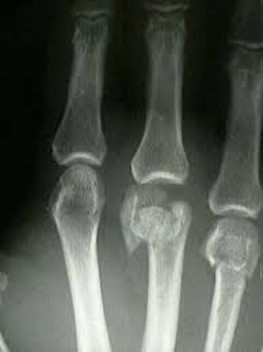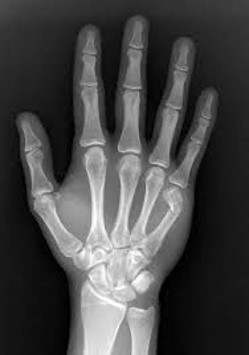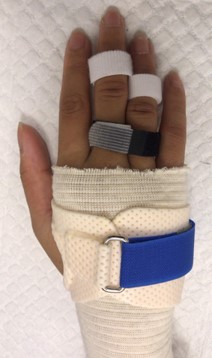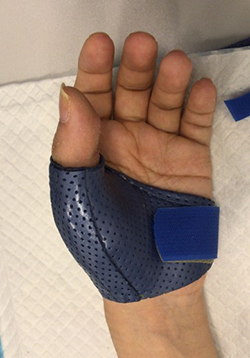




Health Information



Metacarpal Fractures
Metacarpal Fractures
Mechanism of Injury
The injury usually occurs from falling on an outstretched hand or a direct blow to the hand or metacarpal head from punching something.
Symptoms
Fractures are not always painful, and often the patient can still move their wrists. Symptoms may include pain and tenderness over the scaphoid tuberosity and/or in the anatomical snuff box, as well as swelling and bruising.
Diagnosis
Often patients can still move their fingers with metacarpal fractures, so it is vital to get an x-ray to confirm the diagnosis.
|
Metacarpal head fracture |
Metacarpal neck fracture |
Referral
Refer patients as early as possible once diagnosis has been confirmed or post surgery. As early as possible once diagnosis has been confirmed or post surgery.
Management
Fractures are managed depending on what part of the bone is fractured, the type of fracture pattern and how severe the fracture is.
Stable Fracture
- A custom made thermoplastic hand or hand and wrist splint is usually required for 4-6 weeks.
- Buddy strapping to the unaffected radial digit to prevent a rotation deformity.
- Early oedema management and mobilisation of unaffected joints to prevent stiffness.
- Personalised exercise program to regain movement and strength after removal of the splint/cast.
- Advice regarding precautions during the different stages of rehabilitation.
Post-Surgery
- A custom made thermoplastic metacarpal brace is usually required for 6 weeks.
- Wound care including dressing changes and removal of sutures.
- Oedema management.
- Scar management to minimise adhesions and tethering of the extensor tendon to the plate.
- Early mobilisation of the hand and wrist.
- Grip strengthening from 6-8 weeks post surgery.
Splinting
The splint design depends on the location and fracture pattern as well as stability of the fracture. The splint design is discussed in consultation with the treating doctor.
|
|
|
|
Metacarpal fracture brace |
Thumb metacarpal fracture |








